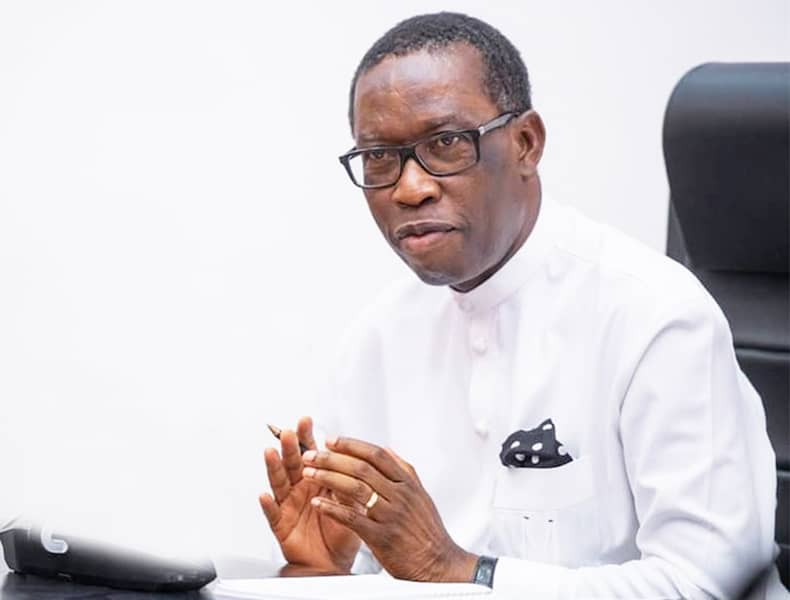War against Niger delta leaders is misguided
Last week, Dr. Ifeanyi Okowa, the former governor of Delta State, was arrested by the EFCC over allegations of a N1.3tn fraud. To me, this is just another instance of the Nigerian state’s ongoing campaign against the Niger Delta, where the region’s leadership has often been under intense scrutiny since the Fourth Republic. The EFCC’s recurring attempts to charge Niger Delta leaders with corruption, despite the fact that the people never requested external intervention, seem to be aimed at sowing discord between the region’s citizens and their leaders.
As the saying goes, “A people deserve the leadership they get.” The leaders of the Niger Delta, some of the most educated and accomplished professionals in banking, media, and entrepreneurship, certainly know what is best for their people, who remain poor yet proud. Despite their struggles, the Niger Delta’s leadership has not sought assistance from outsiders, preferring to chart its own course.
READ ALSO: Japa: I support Nigerians’ exodus to where things will work for them, says Peter Obi
The core issue with Nigeria’s successive leaders, often poorly trained in governance since the collapse of the First Republic, is their failure to understand that, in a multicultural society with groups at varying levels of development, one group cannot impose its values on another. This was a point Sir Ahmadu Bello made to Zik during the lead-up to independence, advising that rather than ignoring the nation’s differences, the founding fathers should first seek to understand them.
Unfortunately, Awolowo grasped this lesson too late. He had tried to promote egalitarianism and free education across the Middle Belt and northeast, only to face resistance. Bello’s assertion that the groups Awolowo sought to liberate were once his ancestors’ slaves proved prescient when, after the Civil War, the Middle Belt largely aligned with northern conservative parties rather than Awolowo’s progressive UPN.
This pattern continued with other groups, such as the Ibibio, Efiks, and minorities in the East, who realized that their best safeguard was an alignment with the north rather than the more dominant Igbo. Similarly, in the Niger Delta, groups like the Urhobos, Ijaws, and Isokos have historically aligned with northern conservatives, even as Pa Edwin Clark, while playing the politics of identity, was reminded that he had always led the Ijaw’s push for such alliances.
History teaches that change cannot be imposed from the outside; it must come from within when a people are ready for it. The Niger Delta, like the rest of Nigeria, is a microcosm of this truth. Despite the EFCC’s regular charges against leaders from the region, the people continue to demand a fair revenue-sharing formula, one that supports farmers, fishermen, and youth whose livelihoods have been stripped away. For the people of the Niger Delta, corruption, as President Jonathan once put it, is not viewed as the same thing as theft, and many see the amassing of wealth by their leaders as justified or even admired.
Take Alfred Diette-Spiff, for instance, who became the first governor of Rivers State at just 25. Although his tenure was cut short by Murtala Mohammed’s coup, Diette-Spiff’s power and influence continued to grow, and he later became the Amayanabo (king) of Twon Brass, maintaining strong political relevance in Bayelsa. Similarly, Diepreye Alameyeseigha, once a major political force and ally of President Obasanjo, was celebrated by his people despite his lavish lifestyle and financial malfeasance. Even after fleeing abroad to avoid arrest, Alameyeseigha was eventually granted a presidential pardon, further endearing him to the Ijaw people.
James Ibori, another former governor, was also celebrated in his home state of Delta despite his conviction for money laundering in the UK. When he was released after serving time in London, his return was met with massive celebrations in Asaba, as the local population expressed overwhelming support for him. Okowa, the current governor, who was believed to have been backed by Ibori, allegedly funded a lavish church thanksgiving service for him upon his release, further cementing his ties to the former governor.
As history shows, the people of the Niger Delta, despite the corruption charges against their leaders, remain largely supportive of them. So, it’s clear that Okowa’s case will likely end the same way as those of his predecessors, with little to no significant opposition from the local population.
Source: Jide Oluwajuyitan


[…] READ ALSO: War against Niger delta leaders is misguided […]